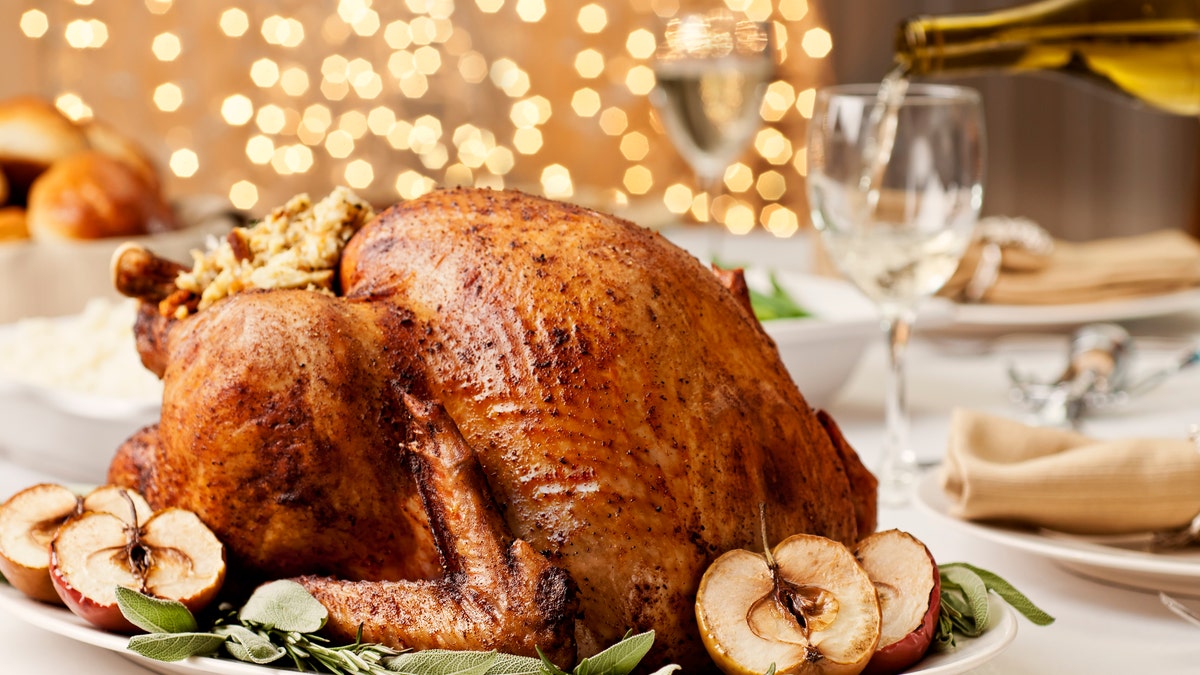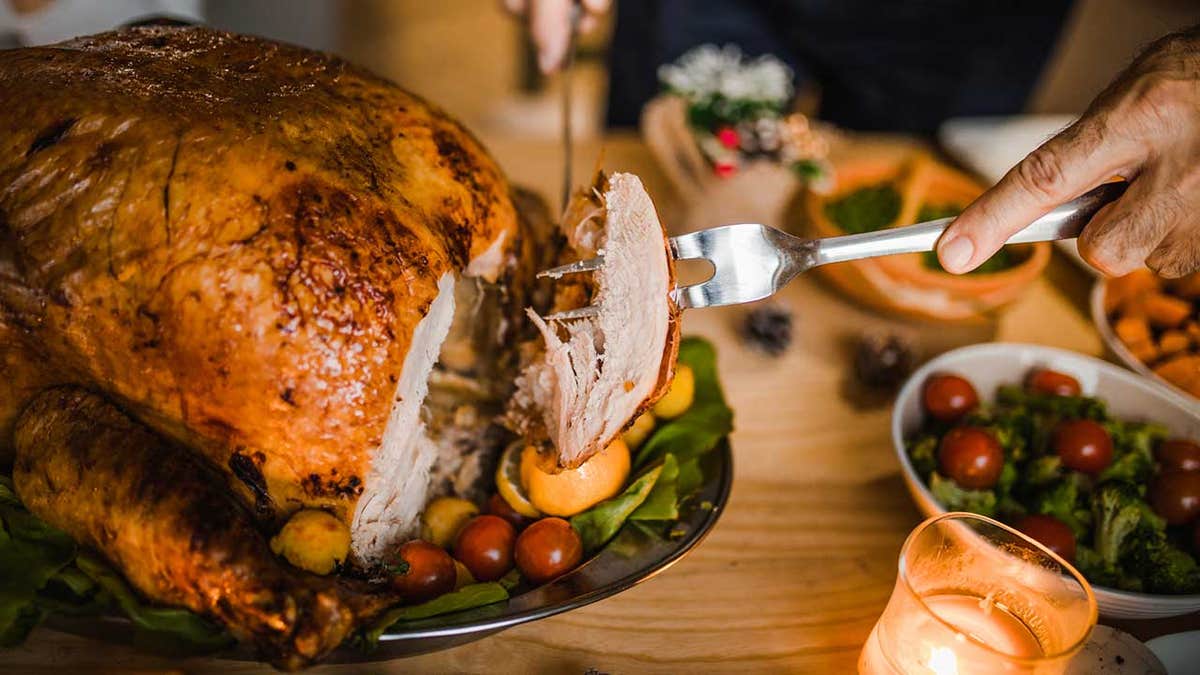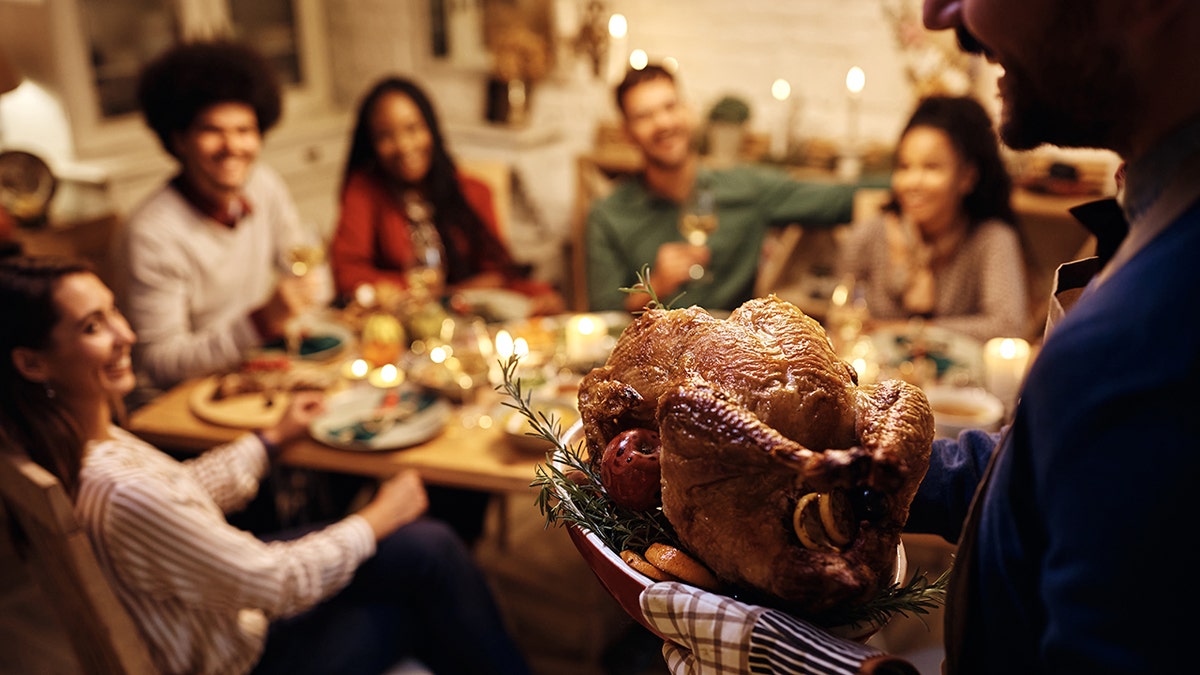Kansans share a Thanksgiving message to remember to count your blessings
Kansas wheat farmers Vance and Louise Ehmke explain how they could be impacted by a potential rail strike then share a Thanksgiving message.
It turns out you can’t blame Thanksgiving turkey for your midday nap.
Instead, food and sleep experts say holiday drowsiness likely comes from feasting and energy exertion.
"Folklore has it that the tryptophan-rich turkey is the reason behind the prevalence of snoozers sprawled out in your living room after the leftovers are tucked away," said Dr. Joan Salge Blake – a nutrition professor at Boston University.
THANKSGIVING QUIZ!: HOW WELL DO YOU KNOW THESE SURPRISING FACTS ABOUT THE ANNUAL HOLIDAY?
"Tryptophan is one of 20 amino acids found in foods and can be converted in your brain to the neurotransmitters, serotonin and melatonin," Blake continued.

It turns out you can’t blame Turkey for your Thanksgiving or Christmas nap. Instead, food and sleep experts say holiday drowsiness likely comes from feasting and energy exertion. (iStock)
Blake said that since both compounds play important roles in regulating sleep, it would make sense that tryptophan has historically been to blame as a "sleep-inducing culprit."
"But if you look a little further into the science (or lack of) behind this folklore, you will soon realize that this tryptophan theory just doesn’t make any physiological sense," Blake added.
Turkey isn’t the only meat that contains tryptophan. According to Blake, a roasted chicken breast usually contains more tryptophan than turkey on average.
Nutrition data published by the USDA’s FoodData Central database reports that a 100-gram serving of cooked chicken contains 362 milligrams of tryptophan while a 100-gram serving of cooked turkey contains 252 milligrams of tryptophan.
CHRISTMAS COUNTDOWN: 25 DAYS OF CHRISTMAS DESSERTS
The daily tryptophan allowance for an average adult can range between 250 and 425 milligrams, according to Joe Cohen – the CEO of SelfDecode, an artificial intelligence-powered health report app.
"Many people regularly get twice the recommended tryptophan amount without even trying through beef, poultry, fish, eggs, soy, yogurt, cheese, milk, and vegetables," Cohen said. "It’s difficult to not get the recommended dietary allowance of tryptophan – it doesn't just come from turkey."

Nutrition data published by the USDA’s FoodData Central database reports that a 100-gram serving of cooked turkey contains 252 milligrams of tryptophan. (iStock)
Rather than blaming the seasonal poultry staple for sleepiness, experts say people are likely experiencing exhaustion caused by a variety of stressors that come from celebrating the holiday.
FIREFIGHTERS REVEAL HOW DEEP-FRYING FROZEN THANKSGIVING TURKEYS POSES EXPLOSIVE RISKS
"When you eat a very large meal, such as turkey, stuffing, and pumpkin pie, your gastrointestinal tract has to work harder to digest all this food. In order for your body to do all this extra work, some of your body’s blood supply is redirected away from your brain to the gut," said Blake. "This shifting of energy-rich blood from the brain to your gastrointestinal tract can cause you to feel tired. Alcohol also has sedating properties."
Blake also advised people to not forget the work they put into creating a holiday: "The amount of time and effort needed to shop, prepare, and clean up the food served would give anyone cause to cuddle up on the couch for a post-dinner nap."
CLICK HERE TO GET THE FOX NEWS APP

Rather than blaming turkey for Thanksgiving or Christmas sleepiness, experts say people are likely experiencing exhaustion caused by a variety of stressors that come from celebrating the holidays. (iStock)
Not getting enough rest before the holiday could make drowsiness worse.
CLICK HERE TO SIGN UP FOR OUR LIFESTYLE NEWSLETTER
"The overeating can make one feel tired or lethargic if they are lacking sleep, to begin with," said Robert Pagano – who is a certified sleep science coach and co-founder of Sleepline, a mattress review company. "Eating too many carbs at once can also make one feel exhausted afterward because their body isn't used to such a large amount of food."










































